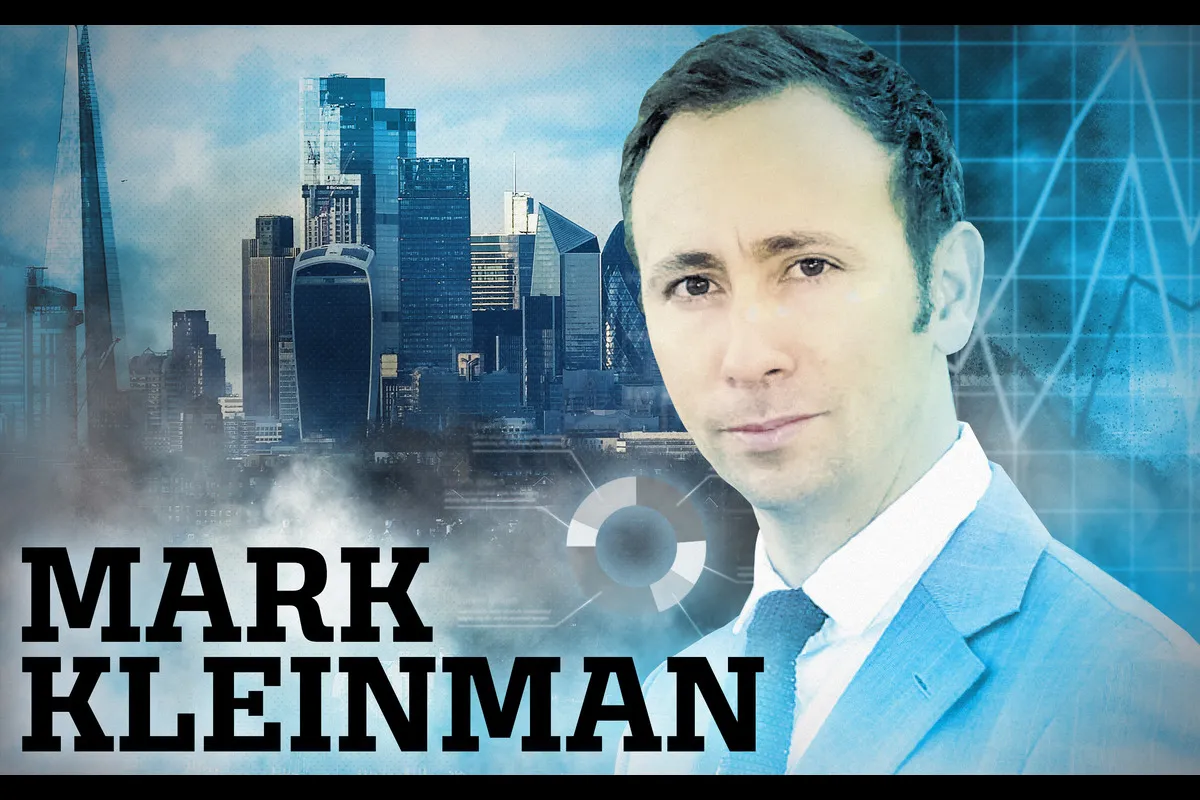By Mark Kleinman
Copyright cityam

Mark Kleinman is Sky News’ City Editor and the man who gets the Square Mile talking in his weekly City AM column. This week he tackles what a bank tax would do to Reeves’ hard-earned City cache, a top pick for the new HSBC chair, and Oaknorth’s potential move abroad
Will she or won’t she? The question of whether Rachel Reeves intends to hammer Britain’s banks with a new tax bombshell in her November Budget won’t be tugging at many heartstrings beyond the Square Mile.
Inside the industry, though, a frantic lobbying operation is well underway, cognisant of the dearth of meaningful levers the chancellor has available to pull if she is to honour Labour’s manifesto commitments, avoid hitting ‘working people’ (depending on whatever her definition of that is on November 26), and meet the government’s increasingly challenged fiscal rules.
The big banks are an obvious target, without question: taxing them harder won’t elicit a welter of negative headlines, and they are financially resilient enough to be able to absorb an additional annual ta burden of, say, a couple of billion pounds.
Reeves’s Budget, though, will be delivered barely four months after she stood up at Mansion House and declared that her financial services growth and competitiveness strategy would herald a new era of deregulation and targeted government support for the City.
It’s hard to see how she can stand up at next year’s City set-piece (if she’s still in the job then) with a straight face if she now decides that banks are ripe for being slapped with an additional corporation tax surcharge or the imposition of a new levy.
That, understandably, was the thrust of a letter from David Postings, chief executive of trade association UK Finance, to the chancellor last week: “Both the financial services sector and the wider investor community have…strongly welcomed your clear emphasis – most recently through the Leeds Reforms – on ensuring that the UK’s financial services sector has the right environment to be internationally competitive,” he told the chancellor.
“As you said in launching those reforms, it is vital to deliver certainty for banks operating here and ensure that UK banks can compete internationally and drive economic growth.”
Postings is right to raise these objections. I suspect that Reeves will offer the olive branch of substantive ring-fencing reforms, which will ultimately be meaningful from a cost-saving perspective, but will be unable to look a gift-horse in the mouth in November when it comes to tax targets. Business certainty is no match for the political expediency of a desperate chancellor.
HSBC’s chairman hunt should be Kheraj coronation
How many students does it take to change a lightbulb? To that oft-used joke, one could add: how many headhunters does it take to find a bank chairman? It’s become a relevant question in the case of HSBC Holdings, Europe’s biggest lender, where City sources say not one, not two, but three search firms are now engaged in the hunt to replace Sir Mark Tucker.
It shouldn’t be this difficult. Chairing HSBC is one of the plum jobs in global banking, and it’s not as though the company’s senior independent director, Ann Godbehere, hasn’t had plenty of time to map out a succession process – Tucker steps down at the end of the month, close to the nine years which tends to punctuate most non-executive terms.
Nevertheless, Brendan Nelson is preparing to become interim chair of the £146bn banking giant without a long-term solution in place – or at least not yet. I reported on Sky News recently that Naguib Kheraj, the prominent City figure, was now among those in contention to succeed Tucker.
Kheraj would be an obvious choice for the job: as a former deputy chairman of Standard Chartered, he is closely familiar with HSBC’s core Asian markets; as a chairman of Petershill, the listed private equity investment firm, he has plc chairmanship experience (albeit on a smaller scale); and as a former finance chief of Barclays and chief executive of JP Morgan Cazenove, he knows the City inside out.
On all of those key criteria, he ranks ahead of the other known candidates. Assuming he is interested in the job, Kheraj is a chairmanship choice staring the HSBC board in the face. It shouldn’t take a full triumvirate of top headhunters to recognise that.
Is Oaknorth heading stateside for long-awaited listing?
Tradition has it that the US is a graveyard for UK-based retailers hoping to traverse the Atlantic with success. British neobanks will be hopeful that the same fate does not await them.
In this regard, industry peers might regard Oaknorth as a trailblazer, since it announced the acquisition earlier this year of Community Unity Bank, a Michigan-based lender. That forms part of a broader US push which, as I revealed on Sky News during the summer, includes bringing Jared Kushner’s private equity firm, Affinity, into the fold as a minority investor.
This all points towards a New York listing for Oaknorth; and worryingly for the London Stock Exchange, both Starling Bank and the much-larger Revolut appear to be heading in a similar direction. Recent reports suggest that both are examining plans to speed up their transatlantic expansion plans by acquiring US-based banks.
Declan Ferguson, Starling Bank’s finance chief, told the FT it was “probably more inclined towards acquisition” than going through a conventional licence application process.
For Revolut, jumpstarting a US push in this way would mean it growing more rapidly into the $75bn valuation which Bloomberg reported last week was on the cards via an employee secondary share sale.
British fintechs, I’d guess, will fare rather better across the pond than their US counterparts.



